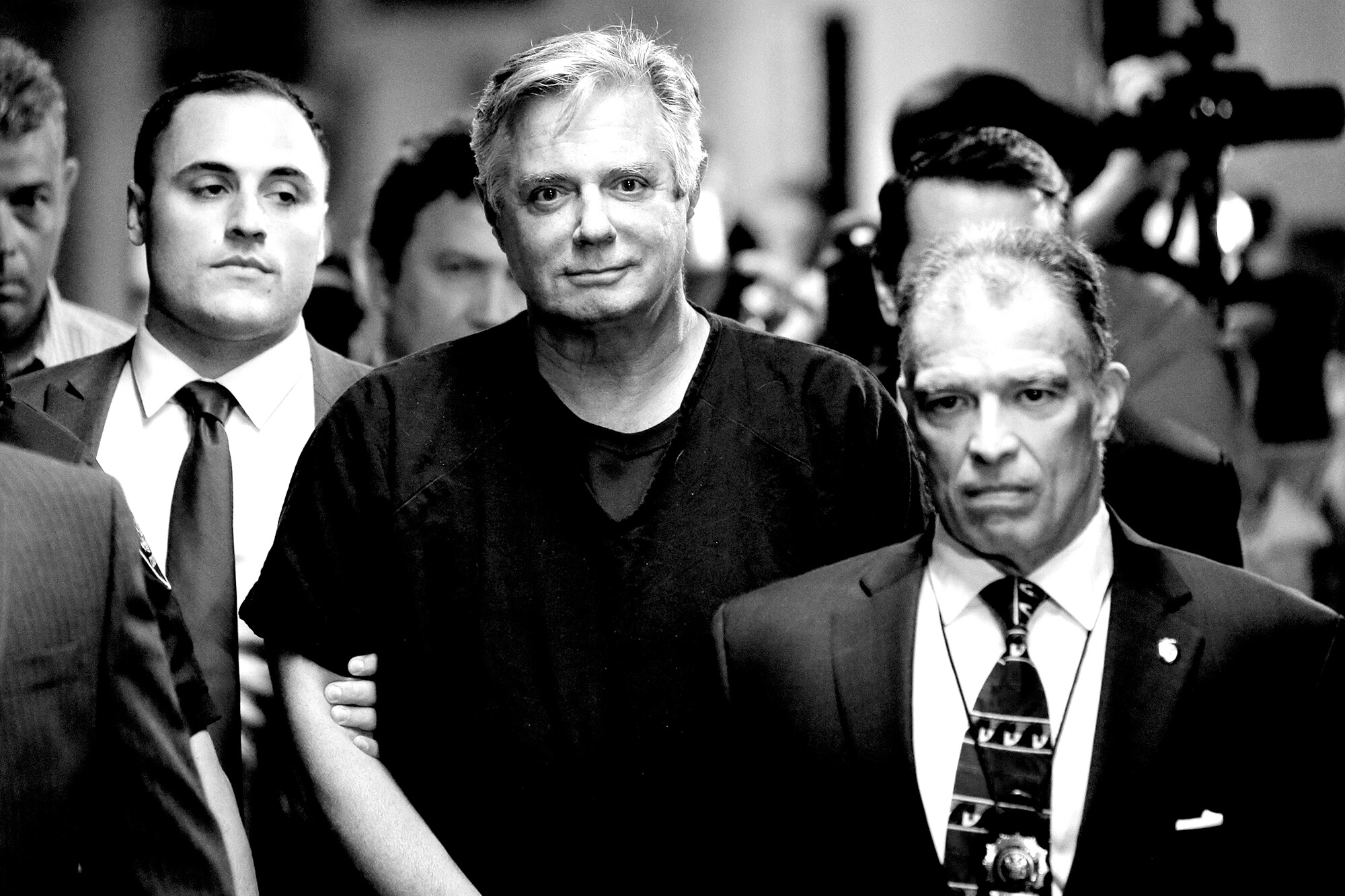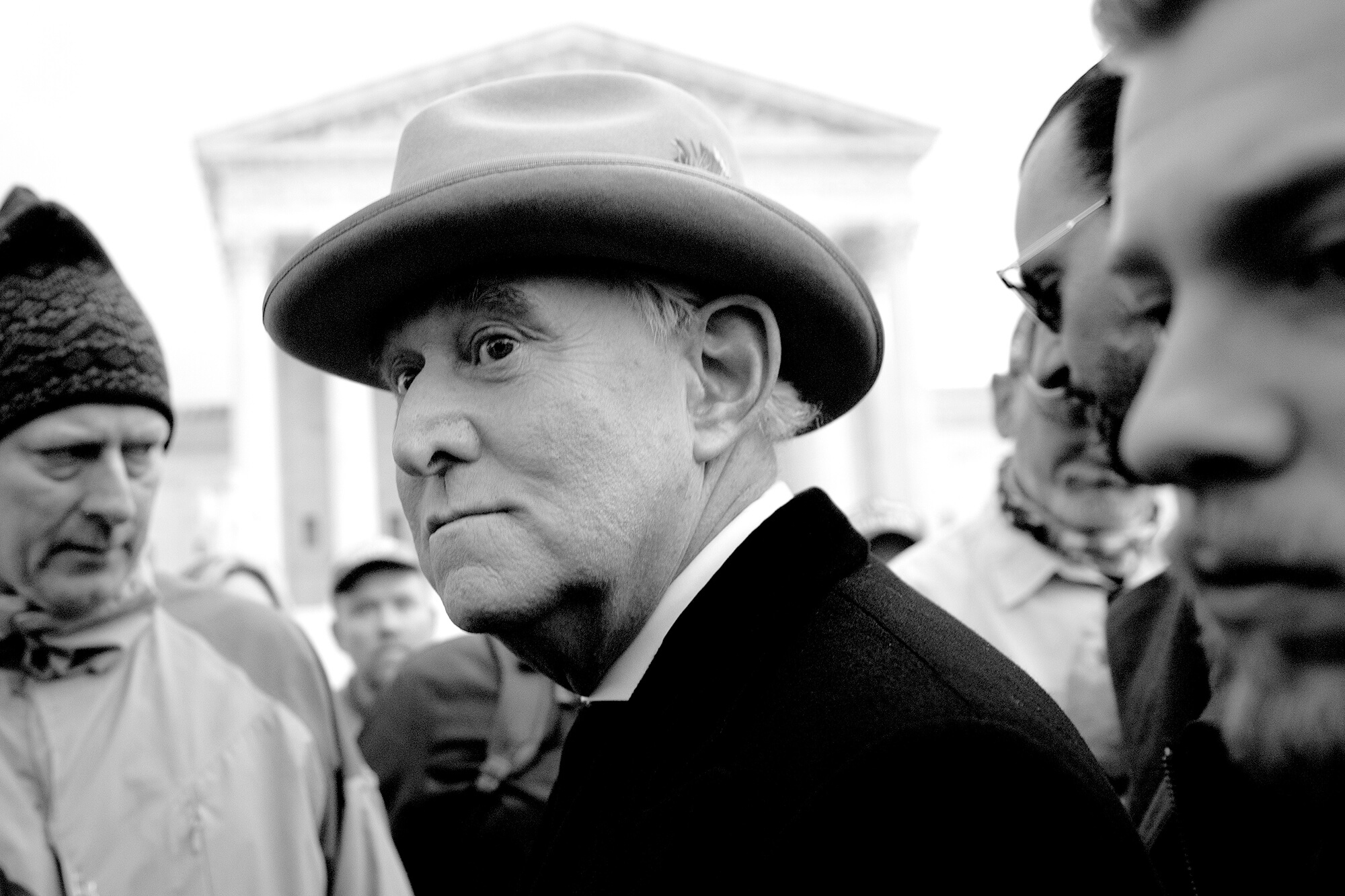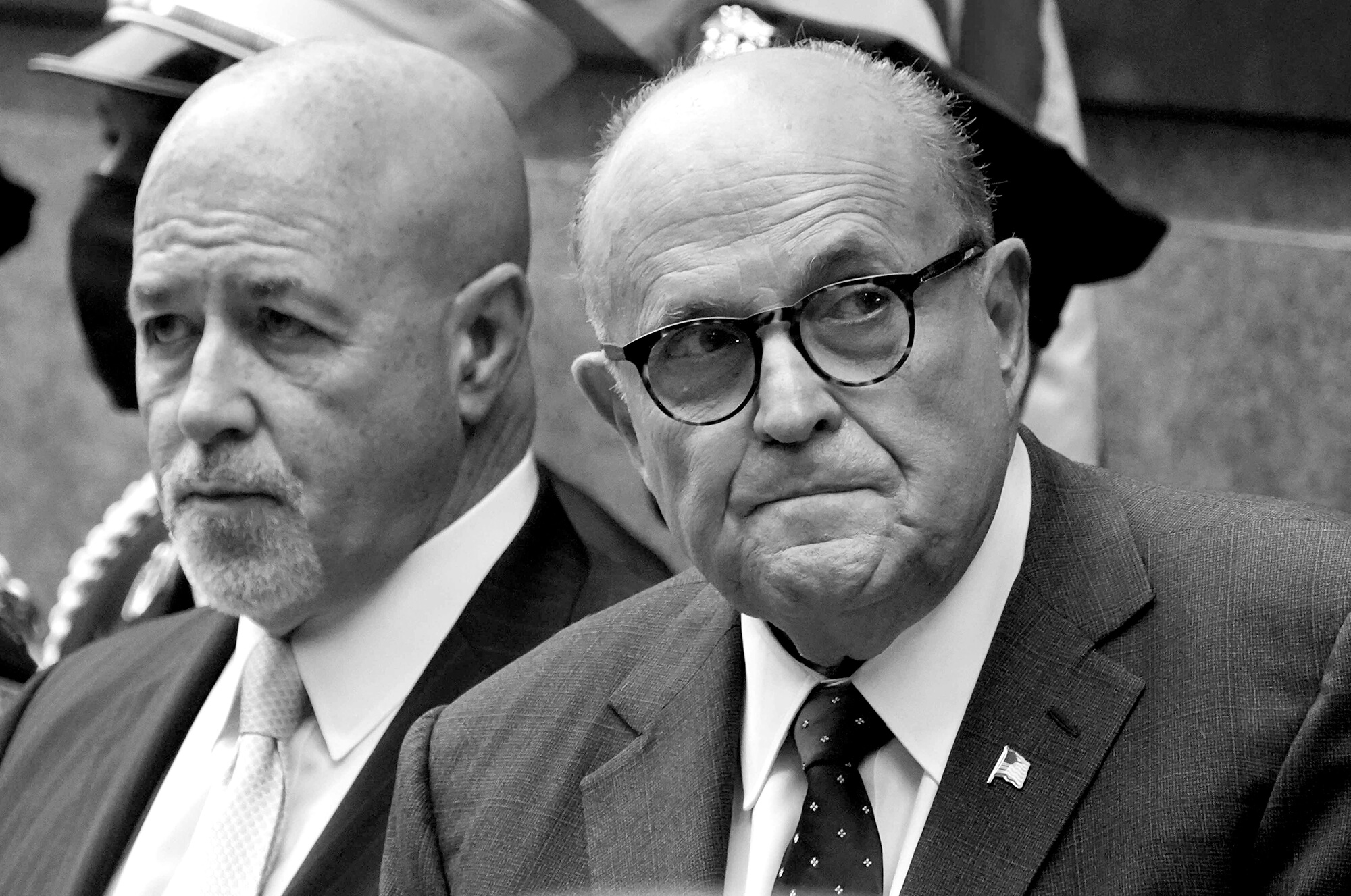Editorial

Donald Trump abused the power of the presidency by pardoning loyalists and friends, including his former campaign chair, Paul Manafort (center), who broke his plea deal and thwarted the investigation into Russia’s interference in the 2016 election and its alleged connection to the Trump campaign.
Donald Trump abused the power of the presidency by pardoning loyalists and friends, including his former campaign chair, Paul Manafort (center), who broke his plea deal and thwarted the investigation into Russia’s interference in the 2016 election and its alleged connection to the Trump campaign. Seth Wenig / AP
Rewards for doing the president’s bidding
One of the broadest, most unlimited powers of the president of the United States is the authority to grant pardons. And if it’s used properly, that power can be an incredibly effective — and democratic — tool in righting the wrongs of the country’s criminal justice system. One of Jimmy Carter’s campaign promises, for example, was to pardon the hundreds of thousands of men who had evaded the draft during the Vietnam War, and he signed an executive order to do so on his first full day in office. And in the era of mass incarceration, executive clemency can and should be used as a means to combat an overly criminalizing and punitive system. Barack Obama used his authority to grant pardons to do just that: Most of the nearly 2,000 people whom he granted executive clemency to were people convicted of nonviolent drug-related crimes.
"Trump’s blatantly corrupt use of it should be a wake-up call to lawmakers of both major parties."
But Donald Trump has proved that a president can use his pardon power not as a corrective for injustice but in exchange for political and personal favors — or even as a tool of coercion or manipulation — and get away with it. In stark contrast to his immediate predecessor, Trump granted clemency to only 237 people. And though some of those acts of clemency included commuting unjustly long sentences for minor offenses, over 100 of them, according to the Lawfare Blog, were granted to people who either had personal connections with the former president or advanced his political cause. Trump was hardly the first president to use his pardon power nefariously, but his blatantly corrupt use of it should be a wake-up call to lawmakers of both major parties that executive clemency must be reformed to limit its potential for abuse.

The president’s pardon power is intended to be a tool of forgiveness to correct for an overly punitive justice system, not a tool to reward criminals who do the president’s bidding. But Donald Trump pardoned Roger Stone in December 2020, after he was convicted of seven felonies including lying under oath. Current laws and norms do too little to stop a president from using their power this way. BRENDAN SMIALOWSKI / AFP via Getty Images
“While the president can by and large pardon whomever he wants, it can be obstruction of justice if the president dangles the possibility of a pardon to stop someone from cooperating with an investigation. And it can be bribery if a president is getting some kind of reward for a pardon,” said Noah Bookbinder, the president of Citizens for Responsibility and Ethics in Washington. “In the case of somebody like Paul Manafort, there might be something there,” Bookbinder said. “It really does appear that the possibility of a pardon was fairly publicly dangled in front of him.”
Manafort, Trump’s campaign chair, agreed to cooperate with federal investigators in their probe into Russia’s 2016 election interference and its ties to the Trump campaign, but afterward, he quickly broke his plea deal and, according to prosecutors, lied to them repeatedly. Trump eventually pardoned him. While there is currently no proof Trump directly offered Manafort a pardon in exchange for not cooperating with the authorities, he did publicly say that he may pardon Manafort while the investigation was still ongoing, and the former president’s lawyer reportedly relayed that information directly to Manafort’s attorneys. That, on its own, could very well be obstruction of justice, and it shows how a president could use pardons to evade accountability for the dirty dealings of their campaigns, or even to cover up their connections, or that they are beholden to foreign adversaries.

Donald Trump pardoned a longtime friend of his personal lawyer Rudy Giuliani, the former New York City Police Commissioner Bernard Kerik (left), for felony convictions. Future presidents might use the pardon power to even more detrimental effect to shield themselves and their inner circle from those who could testify to their misdeeds or crimes. Mark Lennihan / AP
So what exactly can be done about such a broad power bestowed on the president by the Constitution? First, the federal government should follow the example of most states. Instead of the Office of the Pardon Attorney, which oversees clemency reviews and is housed in the Department of Justice, President Biden should establish a clemency board through executive order. That way, with an entire board of various criminal justice experts reviewing petitions together rather than the pardon attorney doing so alone through their office, there would be more eyes on each individual case and a more deliberative process. It should also ensure a transparent process and should be heavily invested in and sufficiently staffed so that it can go through applications more efficiently. While this could be undone by a future president, it would set a new norm for how pardons should be used: to consistently and efficiently undo injustices carried out by federal courts.
"Pardon reform is not a partisan issue — at least not yet."
Second, Congress should muster the will to pass a constitutional amendment that would narrowly constrain the president’s pardon power. This should not be a major curtailment of the president’s power, but rather an effort to reduce the possibility of conflicts of interest and obstruction of justice when it comes to executive clemency. That’s why Congress should strip presidents of the power to pardon themselves, high-ranking administration officials, advisers or senior members of their campaigns, a business associate who worked with the president 10 years prior to entering office, or any person tied up in an investigation involving the president. (Congressman Steve Cohen of Tennessee has introduced similar legislation.) Though constitutional amendments seem to be a chimera these days, both parties in Congress should be wary of the way a president can abuse pardons. And after all, pardon reform is not a partisan issue — at least not yet.
In the end, presidents should retain a relatively broad power to grant pardons. They’re a critical component of the criminal justice system, and often the only hope of granting people a second chance. But so long as Biden and Congress absolve themselves of the responsibility to reform presidential pardons, future abuse of that power is not only likely; it’s inevitable.